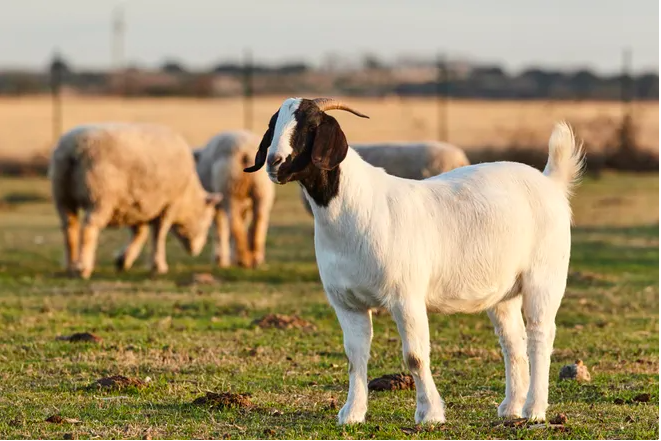Body Condition Scoring in Small Ruminants
When it comes to deciding how conditioned (fat or thin) a sheep or goat is, it is important to know that we do not use the diameter of their abdomen. It is crazy the number of times that a producer or pet owner has claimed an animal is pregnant or over weight just because they have a large belly!
The rumen is a very large organ and absolutely essential to a ruminant, so it ends up taking up most of the abdominal space. In small breeds, like Nigerians or Pygmys, their normal small stature can look quite dramatic when their rumen gets full of fibre!
And while an actual weight can be helpful in very young animals, a scale can be confusing in larger animals, let alone the difficulty of getting them onto that bathroom scale! There are a lot of variables that can change the weight of an animal allowing too much fluctuation on a day to day basis (pregnancy status, water intake, weather/season, diet, age).
The most accurate way to determine if a small ruminant is the correct “size” or “weight” to maintain a happy, healthy, and productive life is by measuring their Body Condition Score (BCS) which is the muscle and fat coverage over certain parts of their body.
The variability in hair fibre and wool can also make it nearly impossible to “eyeball” the BCS. The best way to determine this is HANDS ON!
Palpation Points:
Spinous processes (the dorsal most points of the vertebrae)
Transverse processes (the right and left wings of each vertebrae)
Epaxial fat (the fat cover over the muscles of the back)
Sternum (the “breast bone” on the ventrum between the front legs)
Scapular spine (the spine or ridge that follows the middle of the scapula/shoulder bone)
A VERY good resource is by Ontario Goat and the National Farm Animal Care Council of Canada: Code of Practice for the Care and Handling of Goats
Another thing to remember is the breed of the animal, their stage of production, and their purpose. Just like the difference between beef and dairy cattle, certain dairy breeds will look much taller and skinnier than the stout meat breeds. Animals that are gestating or lactating will require a different amount of condition to maintain these metabolically demanding states.
If you would like some help determining your animal’s BCS or you have questions about which BCS’s are necessary for the animals in your flock/herd, please reach out to book an appointment with Dr. Kay!


